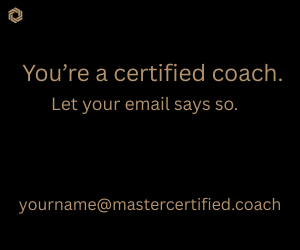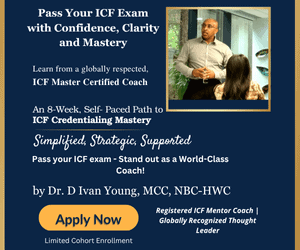As someone who knows a lot about individual’s behavior change and organizational systems changes, I sometimes feel like an imposter. Over the past three years, I’ve researched, published and designed courses about change management. I have also become a mother, a full-time student, a business owner and a credentialed coach. And yet, despite experiencing significant personal changes, my attitude toward change has not significantly altered. Like most people, I still resist it.
Recently, the Human Capital Institute (HCI) and the International Coach Federation (ICF) conducted a study on change management and coaching. In our research, respondents identified coaching-related activities (e.g., one-on-one, team and work-group coaching) as the most helpful method to achieve change management goals and initiatives. Coaching-related activities are rated as more helpful than e-learning and classroom training.
Why? What makes this partnership work?
On paper, the change management process is linear, but the change experience is not. Sometimes change managers and leaders are guilty of oversimplifying this; they do not anticipate and plan for how change is experienced at the individual level. The motivation someone has to change increases and decreases depending on how much they need to change, their level of self-efficacy and how significant the change is to them. This is where coaching can help. Coaching is a powerful tool to identify and address individuals’ resistance to change, and it should be part of any major organizational change initiatives.
Where does resistance come from? Coaches have a skillset to address these common challenges:
1. We fear we aren’t able to meet the new reality
We are afraid of what that failure might signify about our own capabilities. This fear can be immobilizing and resisting change may look like procrastination, self-sabotage or discounting organizational initiatives.
To overcome this, coaches can address clients’ self-efficacy in one-on-one, team or group sessions; organizations can offer training and support; and leaders can encourage a growth mindset.
2. We have insufficient information about the change
Compared to the people most directly affected by a change, change designers, managers and sponsors have had more time to process and prepare for a shift. An organization-wide technology change may take months or even years of planning, but too often, changes of this magnitude are only communicated to users as it is launched, upending their daily routines.
To overcome this, coaches can point out clients’ non-evidence–based assumptions and encourage people to seek out more information. Those involved with the change should build multi-channel communication plans that identify new expectations. These plans should allow time for processing and Q&A sessions.
3. We imagine the worst possible outcomes
When I was pregnant, I was scared about how a baby would impact the life my husband and I share. I realize now that if I allowed myself to imagine a different future then—one like my life today that is beautiful and so very fun as a family of three—I would not have felt so hesitant and nervous about becoming a mother.
Coaches hold space for clients to explore possibilities about the future, help surface fears and barriers and define a clear path for their goals. Coaches partner with clients during these transitions to support and challenge so they are better able to move toward their desired future.
4. We like things the way they are
Most people cling to what they recognize, and yet, we also know that growth is inevitable. Messages of resistance from a client sound like communicating contentment with the status quo, expressing commitment to the current situation, and sharing the disadvantages of a change.
Motivational Interviewing is a technique used in coaching to build intrinsic motivation and strengthen the client’s commitment to action. Coaches ask powerful questions to build awareness of the resistance, identify its symptoms and impact and help clients reframe the situation to one that is more positive and focused on their goals.
For the HCI ICF research study, I interviewed both change management professionals and professional coach practitioners. In the majority of interviews, it was a novel idea to pair change management practices with coaching. It’s a powerful union to take coaching skills and apply them to change initiatives in a thoughtful way. How are you building a coaching culture for change management? What have you learned? Share your story with us and learn more about this topic during this upcoming webcast.
Disclaimer
The views and opinions expressed in guest posts featured on this blog are those of the author and do not necessarily reflect the opinions and views of the International Coach Federation (ICF). The publication of a guest post on the ICF Blog does not equate to an ICF endorsement or guarantee of the products or services provided by the author.
Additionally, for the purpose of full disclosure and as a disclaimer of liability, this content was possibly generated using the assistance of an AI program. Its contents, either in whole or in part, have been reviewed and revised by a human. Nevertheless, the reader/user is responsible for verifying the information presented and should not rely upon this article or post as providing any specific professional advice or counsel. Its contents are provided “as is,” and ICF makes no representations or warranties as to its accuracy or completeness and to the fullest extent permitted by applicable law specifically disclaims any and all liability for any damages or injuries resulting from use of or reliance thereupon.
Authors
Post Type
Blog
Audience Type
Coach Educators, Experienced Coaches, External Coaches, HR & Organizational Leaders, ICF Assessors, ICF Chapter Leaders, Individuals Interested in Experiencing Coaching, Internal Coaches, Managers/Leaders Using Coaching Skills, Mentor Coaches, New Coaches, Professional Coaches, Team and Group Coaches
Topic
Future of Coaching, Research
Related Posts
Walking the Talk: Reflective Practice for Coaches
Embodying presence and self-care through ICF Competency 2. This article explores how…
Why Transformational Coaching Will Always Be Human
As artificial intelligence (AI) gains power and popularity, many coaches are asking,…
Coaching for Growth at Alberta’s Municipal Climate Change Action Centre
It started with two colleagues sharing a passion for sustainability. Professional coach…








